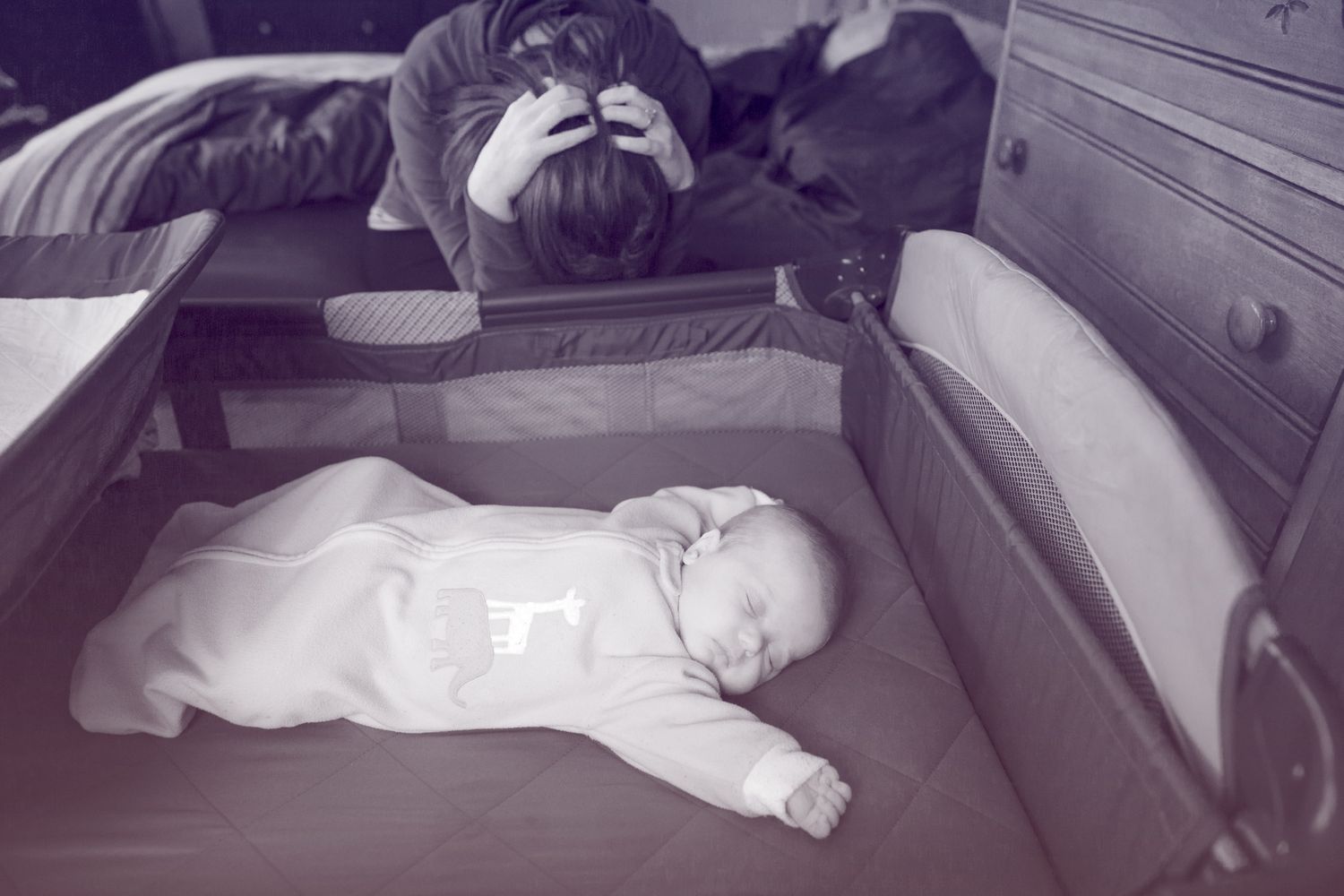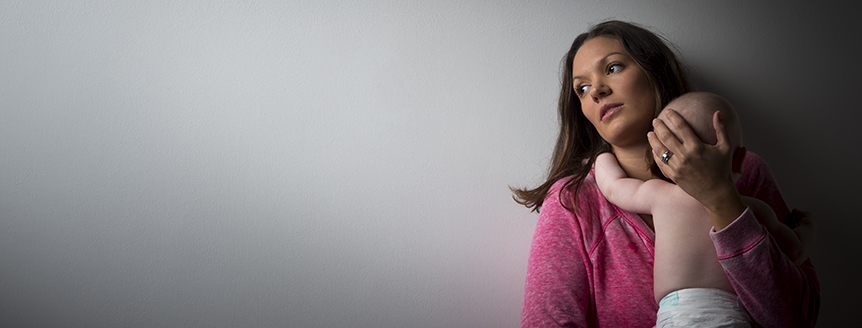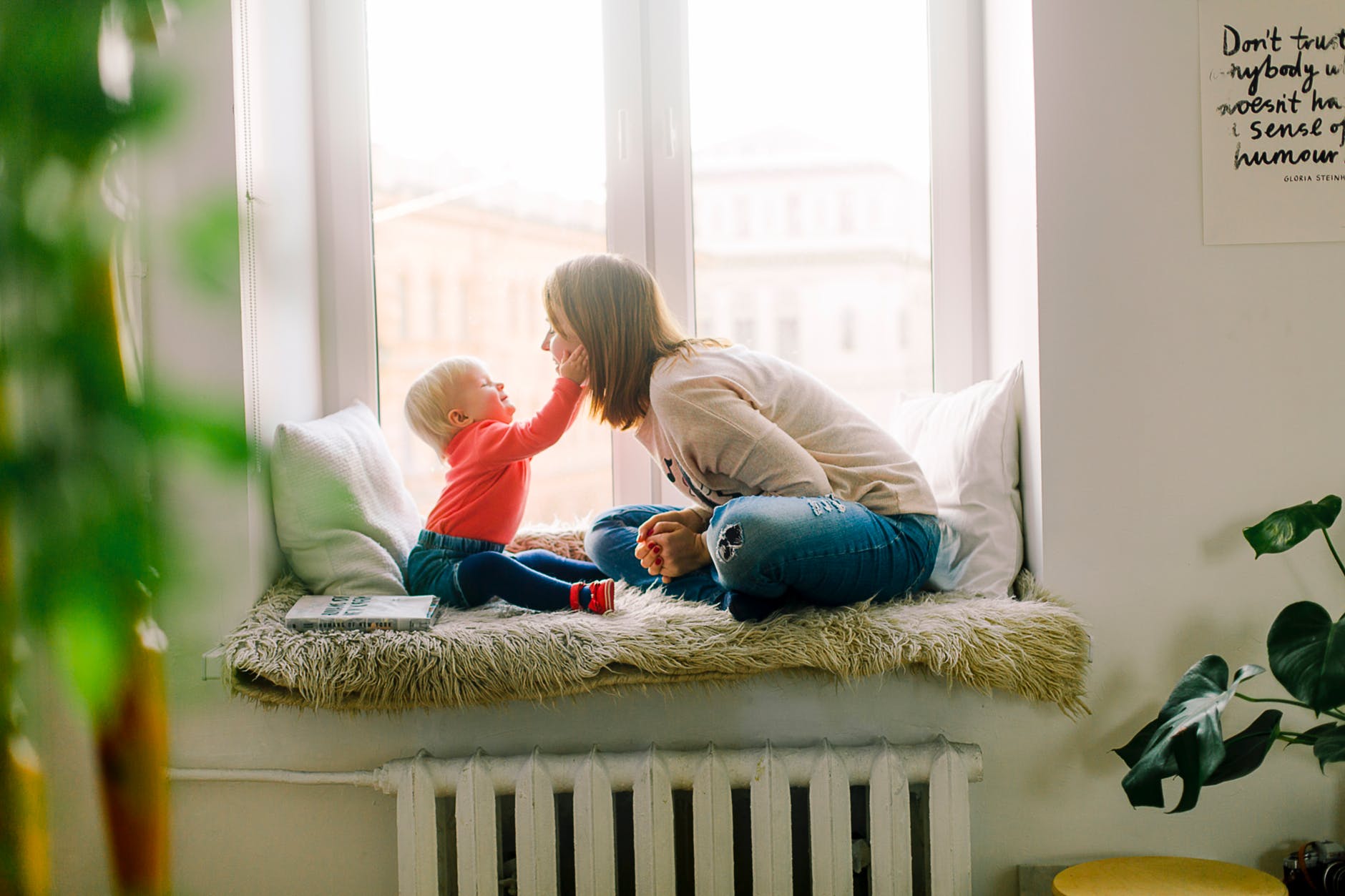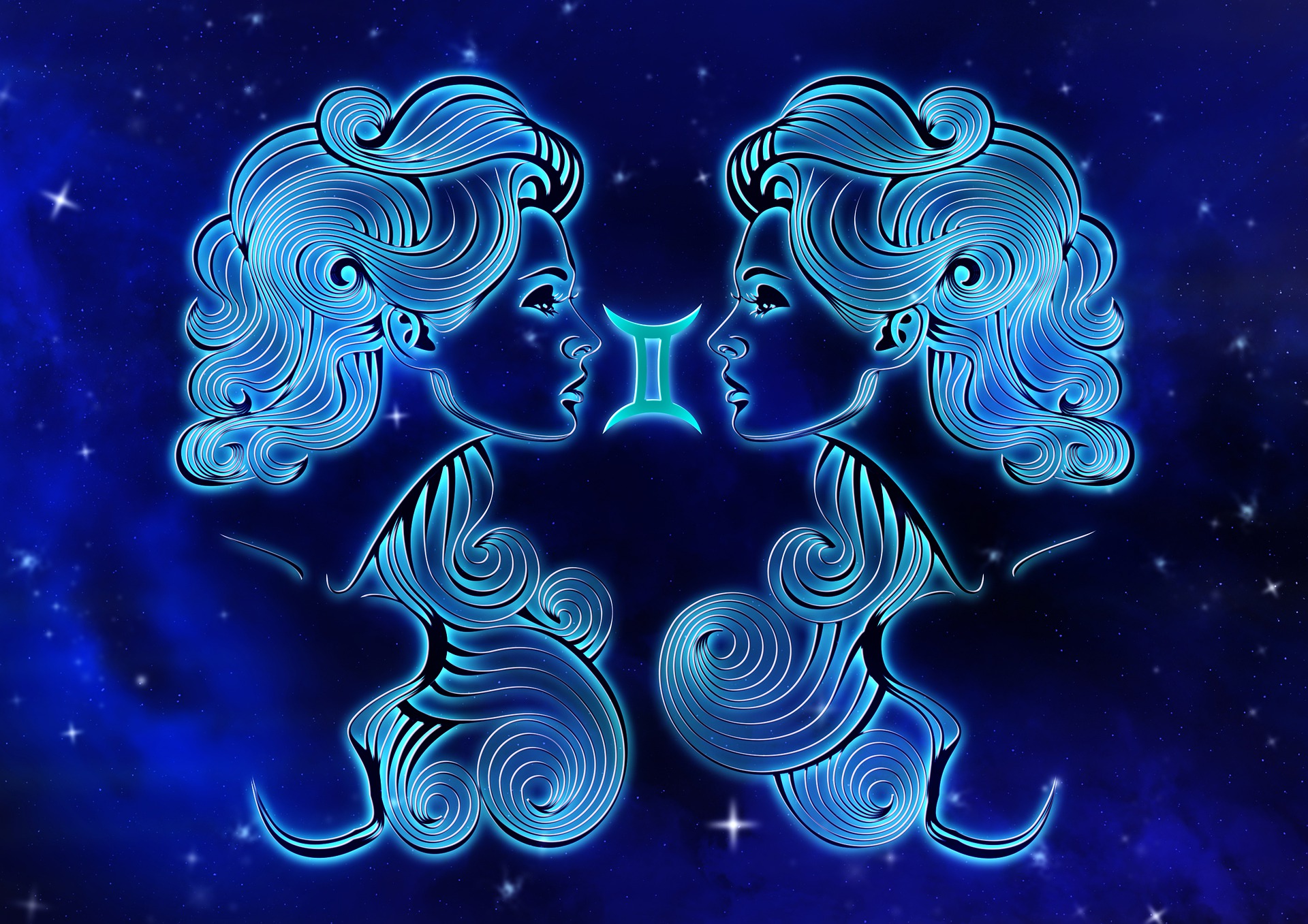A candid, open, and honest look at the struggles new moms go through when they suffer from postpartum depression.
On the laundry list of mom-to-be and new-mom taboos, postpartum depression (PPD) has earned itself a spot on the very top. Despite being relatively common, postpartum depression is widely misunderstood. It affects as many as 10 to 20 percent of new mothers and briefly impacts approximately 70 to 80 percent in the form of the “baby blues,” a less severe and short-lasting condition.

“Like all mental illness, there’s so much stigma and stereotypes that surround postpartum depression that make it difficult for a new mother to reach out for help or admit that she might be struggling,” says Crystal Karges, MS, RDN, IBCLC, a maternal health specialist at Crystal Karges Nutrition who experienced postpartum depression herself. “Many of the symptoms of postpartum depression are commonly misunderstood or mistaken as part of ‘new motherhood,’ when in fact, it may be a more serious illness at hand that warrants professional interventions.”
Much of the discrepancy between what postpartum depression looks like and what it’s actually like comes from the way it is portrayed in the media and society, especially on social media. We’re used to seeing one of two extremes—the over-the-moon happy mom who feels beyond #blessed to be gifted her precious baby and who enjoys every single moment #nofilter, and the deeply broken new mom who cannot stop crying because her world has been turned upside down. The reality, however, is that there’s an entire spectrum of symptoms lying in between that are far more subtle—and many of them are specific to the mom experiencing these symptoms. In other words, the symptoms are not always a one-size-fits-all.
This is why the term Perinatal Mood and Anxiety Disorders (PMADs) is quickly becoming the standard denomination when discussing maternal mental health conditions. “PMADs refer to a group of mental health symptoms occurring before and after childbirth and persisting up to one year or longer that are characterized by changes in mood that can interfere with a woman’s ability to handle day-to-day tasks, including bonding with her infant,” says Patricia De Marco Centeno, M.D., a reproductive psychiatrist and the medical director of Maternal Mental Health Program at Hoag Hospital in Newport Beach, California.
To better understand how symptoms of postpartum depression manifest—and what they’re really like—we reached out to real women who’ve suffered and survived PPD. Here are the most common symptoms of PPD, based on their experiences.
Anxiety:
A large majority of new mothers feel anxious and panicky, and these feelings can be quite intense—not only because of the hormonal fluctuations following the birth, but also because of the impact of bringing a new life into the world and the responsibility that holds, says Elyse Weinstein, M.D., psychiatrist and co-chair of the Mental Health Department for Kaiser Permanente in San Rafael, California. For Rebecca Conklin, mom of four from Tampa, Florida, managing her anxiety and stress level was a daily battle. “If the baby cried, my heart would start racing, and just driving in the car with her would send me into a panic attack,” she says. “If something unexpected happened, no matter if it is big or small, I would find myself amid a panic attack.”
Kristin White, a mom of two from Gig Harbor, Washington, also suffered panic attacks caused by postpartum anxiety that were so debilitating they sent her to the ER on a few occasions. “I constantly worried about irrational fears such as a fatal car accident, my son being kidnapped by a babysitter, or me dying and leaving my son without a mom,” she says. “I did recognize that these were not normal thoughts, but at times they would manifest themselves into an endless record of spinning thoughts.”
Loss of Interest in Hobbies or Activities:
Many new moms suffering from postpartum depression find themselves less likely to engage in activities that they once found enjoyable, such as running, yoga, journaling, spending time with friends, or getting their nails done. Of course, participating in many of these activities is more challenging when you’re caring for a new baby around the clock, but a more severe reduction in interest in them is worrisome. “If a new mom used to have plenty of energy and joy with what she did, but now cannot feel any joy doing any of the things she used to enjoy, it is a sign of PPD,” says Mary Ann Block, D.O., P.A., medical director of The Block Center.
Vanessa Gordon, a mom of two from Sag Harbor, New York, had no interest in talking to or seeing anyone and ignored phone calls, emails, and direct messages when she first became a mom. “I had no interest in anything fun because I felt like I was not worthy,” she says. “Even celebrating a friend’s birthday two weeks after my baby was born was difficult—I ended up not showing up because I felt unworthy to have a friend.”
Irritability and Mood Swings:
It’s hard for anyone to stay level headed when they’re sleep-deprived, however sharp and drastic mood swings and a feeling of not being able to control one’s emotions often signals postpartum depression, notes Dr. Blocker. Gordon describes this as feeling like everyone was expecting something from her. “Anything could set me off, from my baby needing a changing and my needing to get up right away to being told ‘you need some sleep’ combined with ‘you should get someone to help you out,'” she says. “Any disagreement, big or small, triggered this irritability.”
Frequent Crying Episodes:
Sudden bursts of crying are often associated with new motherhood, in part due to hormonal imbalances associated with the weeks after childbirth, but they tend to last longer in women with postpartum depression. In addition, many times mothers with postpartum depression find themselves crying for no substantial reason at all. Of the many things that made Karges cry after she had her baby, the majority were things that wouldn’t have ever bothered her before, like being out of milk or not being able to find something she was looking for. “I would just burst out into tears and feel completely overwhelmed by my emotions.”
Anger and Rage:
Along with feelings of irritability, many moms note feeling intense moments or even hours of rage. Karges explains that this symptom is quite common and rears its head in an angry episode often directed toward oneself, other family members, or even the baby. White even found herself directing anger at random people she’d come across throughout her day. “If someone didn’t reply back to my email at work, I felt disrespected by a cashier at the grocery store, or my husband didn’t load the dishwasher correctly, I would feel the fire inside of me and just want to hit and scream,” she says. “Unfortunately, my son experienced some of this rage when he wouldn’t do ‘normal’ toddler things like getting into his car seat.”
Feeling Disconnected from your Baby:
A lack of interest for the baby or intense anxiety around the baby can be some of the most distressing symptoms to both the mother and family, explains Dr. Weinstein. “It is hard for all concerned to understand that these are symptoms and not an indication of one’s ability to mother,” she says. “They speak to the level of depression and lack of ability to function and can also occur due to the profound lack of sleep and the anxiety that occurs with PPD.” Kargas describes feeling as though she was just going through the motions of caring for her daughter and her needs, but not feeling emotionally connected to her. “So often I had heard women describe the immediate love and affection they had for their babies, and that never occurred for me,” she says. “Instead of knowing that I was, in fact, struggling with a serious mental health issue, I blamed myself for being a bad mom.”
Intense Guilt:
It’s typical for mothers and new parents to be critical of themselves, explains Dr. Weinstein. “They imagine wanting to either emulate what their own parents did or do it differently than how they were parented,” she says. “The mom can feel defeated like she’s not doing anything right.” For Anna Yam, Ph.D., a perinatal mental health specialist at Bloom Psychology who suffered postpartum depression firsthand, guilt was the hardest symptom to swallow. “I felt guilty for wanting to take time away from my baby and for not having enough energy to provide her with ‘proper stimulation,'” she describes. “I felt guilty for not ‘enjoying’ her early babyhood.”
Conklin too remembers feeling immense guilt and shame—specifically after the times where she’d yell or become aggravated with her husband or children. “It became a vicious cycle that caused me to sink deeper into depression,” she says. “The more I felt out of control with my emotions, the more I felt I was failing my kids.”
Lack of Sleep—or Too Much Sleep:
Most new moms have difficulty sleeping, especially in the first few months; however, Dr. Weinstein explains that some new mothers have sleep issues that are due to depression or anxiety. “Either their body just won’t let them sleep or their mind can’t take a rest, which may cause them to worry more and ruminate about the smallest things,” she says. “This can be quite distressing and interfere with functioning.” Although White didn’t have trouble falling asleep, she remembers waking up every three to four hours even when her baby was sleeping just fine in his crib. “I would wake up with anxiety, always thinking about what I needed to do and hypothetical what-ifs (what if my baby died, what if my husband left me, what if I have cancer),” she says.
Changes in Appetite:
“When any person is depressed or anxious, they can either overeat, out of nervousness or to make themselves feel better, or lose their appetite altogether,” explains Dr. Weinstein. “Their upset state takes their appetite away, and in some cases, it may be that they are not taking care of themselves because they lack motivation and energy to do so.” White found herself eating more than usual and drinking several cups of coffee in an attempt to mitigate her appetite. “I would use naptime as an excuse to eat a second lunch in front of daytime talk shows,” she shares.
For Gordon, this manifested itself in an inability to eat meat due to immense feelings of guilt when doing so. “It was so bad some days that I could hardly pour myself a glass of juice, getting up out of bed was a true feat.”
Feelings of Hopelessness and Isolation:
Many new mothers suffering from postpartum depression express feeling as though they’re on their own island—that their loved ones simply don’t “get” what they’re going through. To add to the issue, PPD symptoms make it difficult for new mothers to connect or even communicate with their loved ones. Emily Merriman, a mother of three from Chicago, felt as if no one would understand what she was going through. “I didn’t want to leave the house or talk to anyone in fear that they would feel something was really wrong with me,” she says. “Even when friends said they understood, I felt they couldn’t possibly know what I was feeling.”
How to Get Help:
Despite how common postpartum depression is—especially the less severe symptoms of “baby blues,” too many new moms suffer alone or feel ashamed. “Every woman will experience symptoms differently, so it’s critical to reach out for help or talk to someone if you feel like something is not right,” says Karges. “You may feel worried, embarrassed, ashamed, or scared about admitting symptoms that you are experiencing, but remember that these symptoms do not define who you are as a woman and a mother.” Professional help and resources are available to support you through your journey that you can better enjoy early motherhood—don’t be embarrassed to ask your obstetrician or child’s pediatrician for referrals. After all, caring for you and your baby is their job.
Image Source:*copemanhealthcare.com
Source:parents.com









